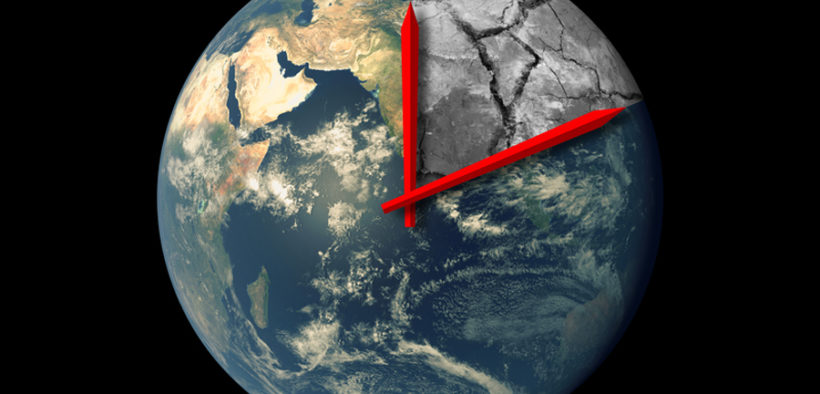Op-Ed: The planet’s red alert

Floods in Germany, wildfires in California, historic droughts in the western United States and Brazil, sargassum tides on the shores of Caribbean beaches, extreme heat in eastern Canada and Great Britain. These are just some of the effects that human life has on the planet.
It is estimated that by the year 2100 heat waves will be more frequent and of longer duration. The planet is experiencing a climate crisis because human activity has increased the concentration of carbon dioxide and methane, the most powerful of the greenhouse gases.
As a result, the temperature on the planet has risen two degrees Fahrenheit, enough to trigger reactions ranging from heavy rains to melting glaciers and rising sea levels.
Almost 30 years ago, the United Nation’s Intergovernmental Panel on Climate Change (IPCC) warned us of this near-apocalyptic scenario.
It was the year 1992 and a group of scientists urged world governments to take measures to avoid the “profound consequences” that the increase in temperature would have for human beings and the planet’s ecosystems if we did not act on the suggested changes.
Last Monday, the same panel informed us that we have altered the environment in an “unprecedented” way where we can no longer go back to the past. If the current rate of greenhouse gas emissions is maintained, the global temperature will increase.
We can take steps to keep the planet in current conditions. However, the warming is not reversible. We’re facing a red alert. From now on it is about avoiding eroding current conditions and learning to plan according to circumstances.

Collective efforts to reduce the effects of climate change previously proved ineffective. Each of the past four decades have been hotter than those that have preceded since the 1850s. The industrial revolution, the evolution of commercial and production activities and the accelerated human footprint have all contributed to bring us to this turning point that must result in introspection and radical change.
The government of Puerto Rico has said little on the matter. Certainly, a small territory does not contribute to climate change as a larger one. But everyone on the planet is at the mercy of extreme weather events that can alter our daily lives, health, and future. The IPCC report does not offer solutions, rather it raises possible scenarios — with the greatest scientific rigor — of not taking action.
We still have time. It’s time to wake up from denial and accept that all Puerto Ricans, in our individual character and as a collective, have the power to act and implement changes in our lives and in consumption patterns that result in a more sustainable lifestyle and less impact to the planet.
Business and industries. Individuals and communities. After all, we only have one planet!














